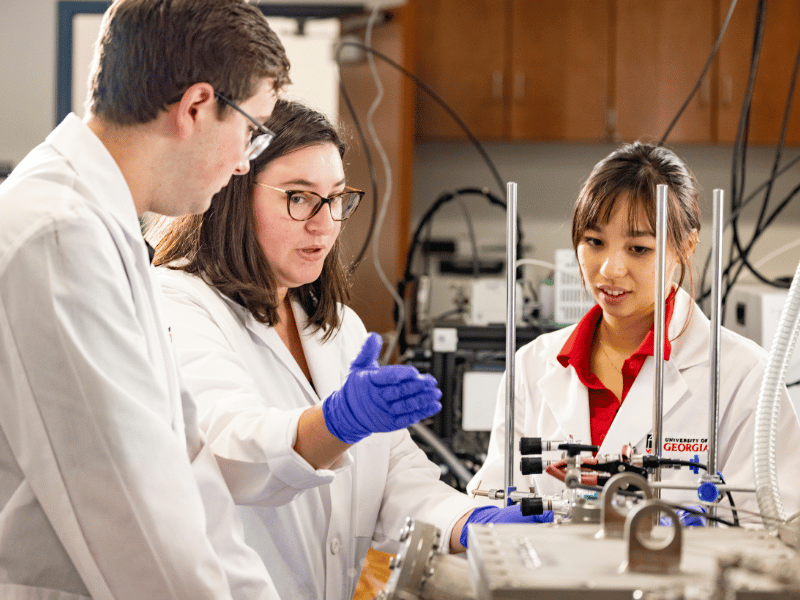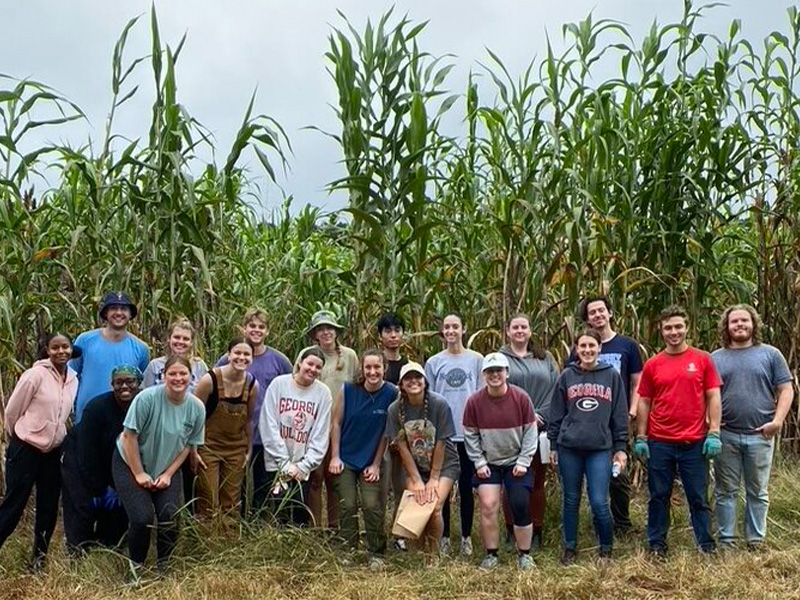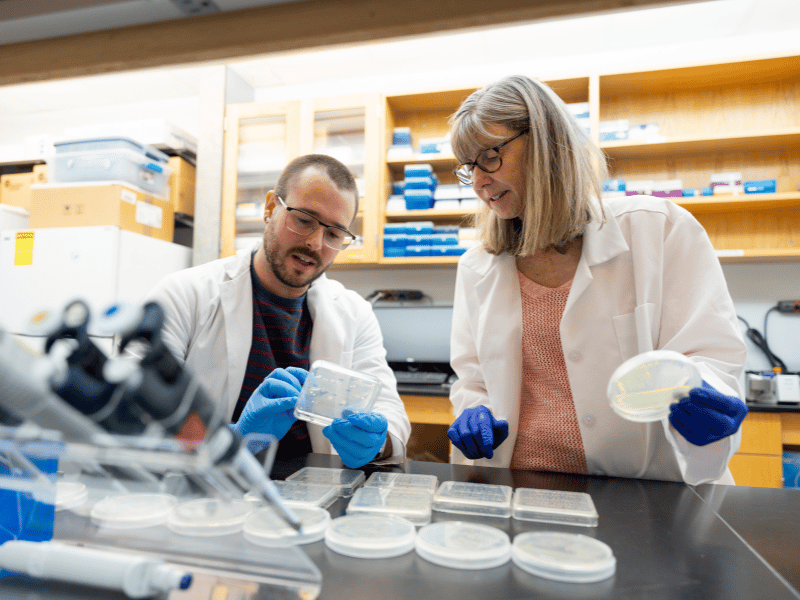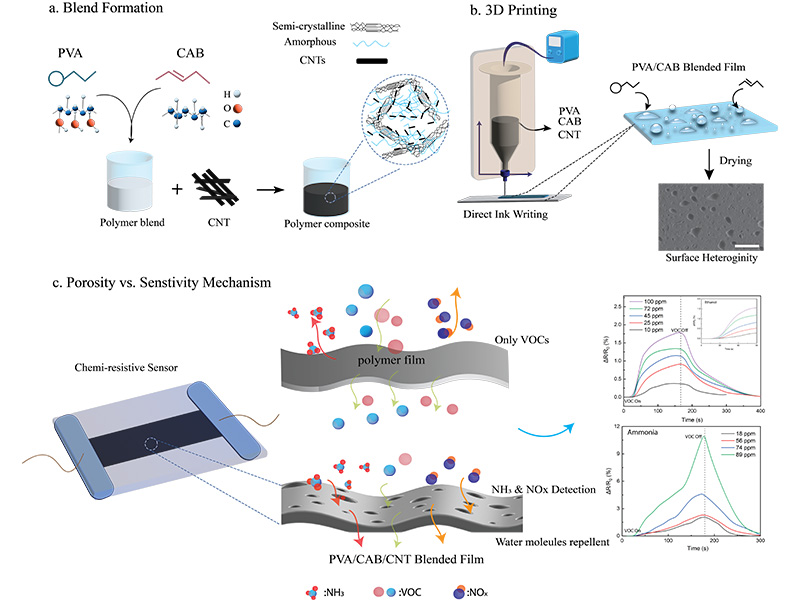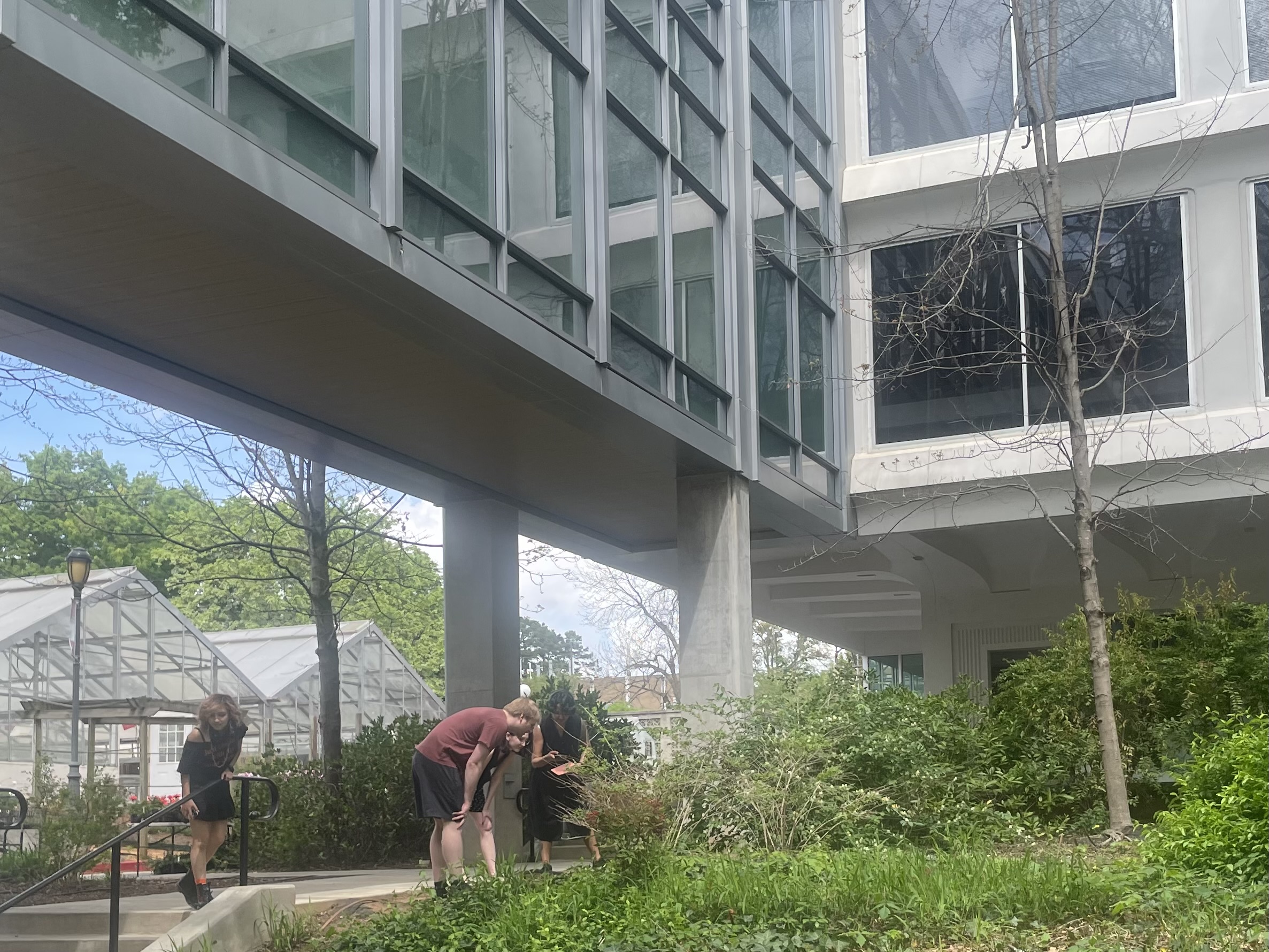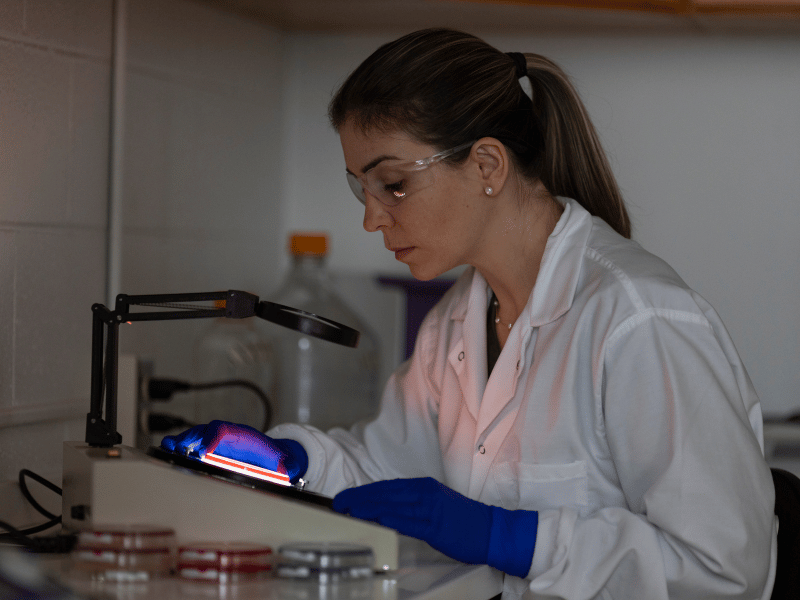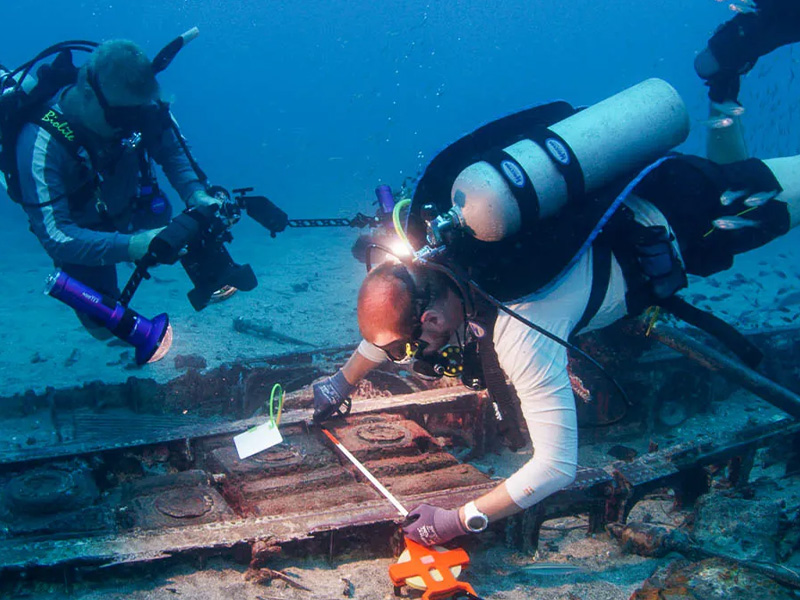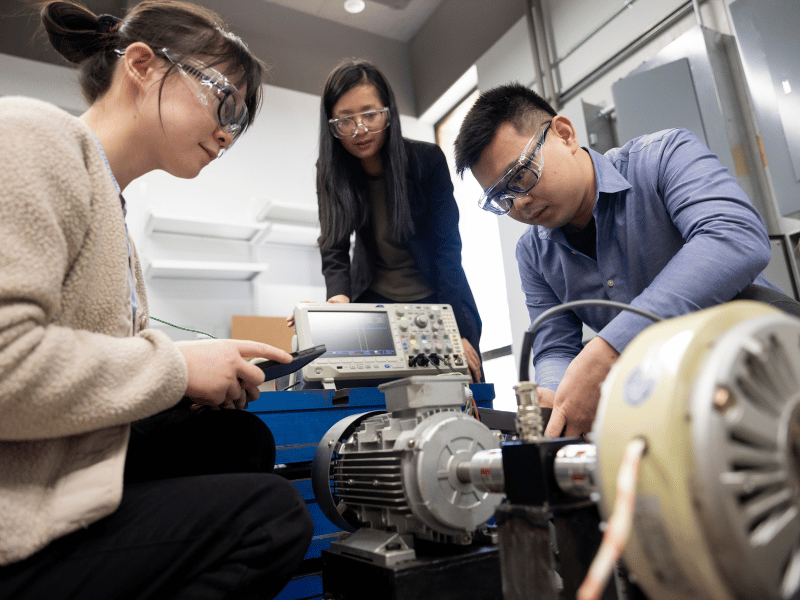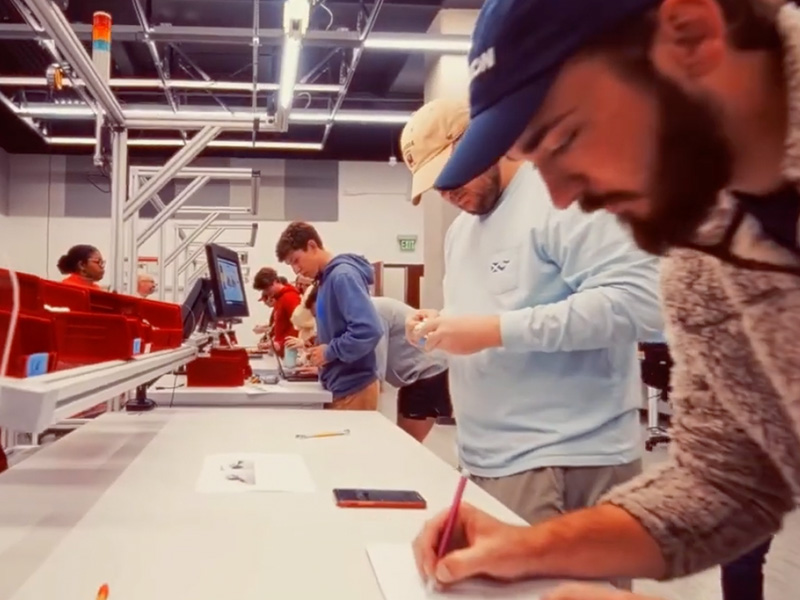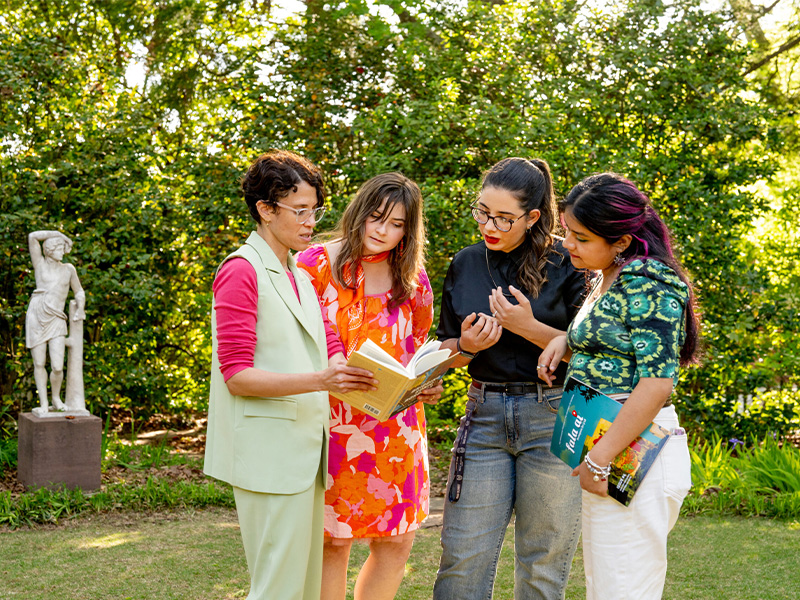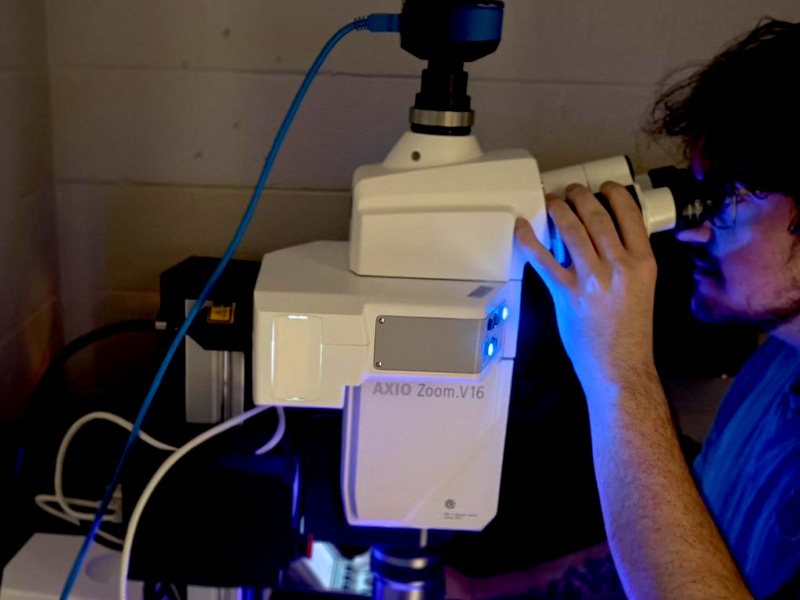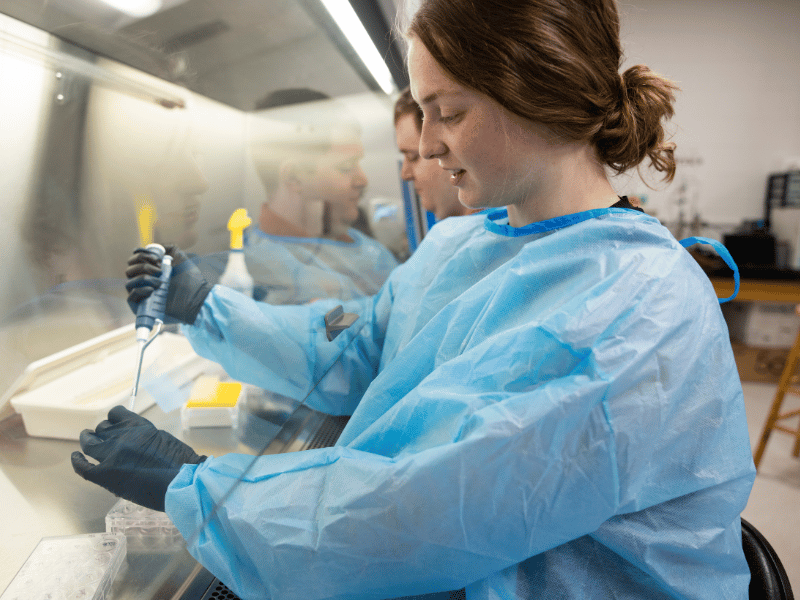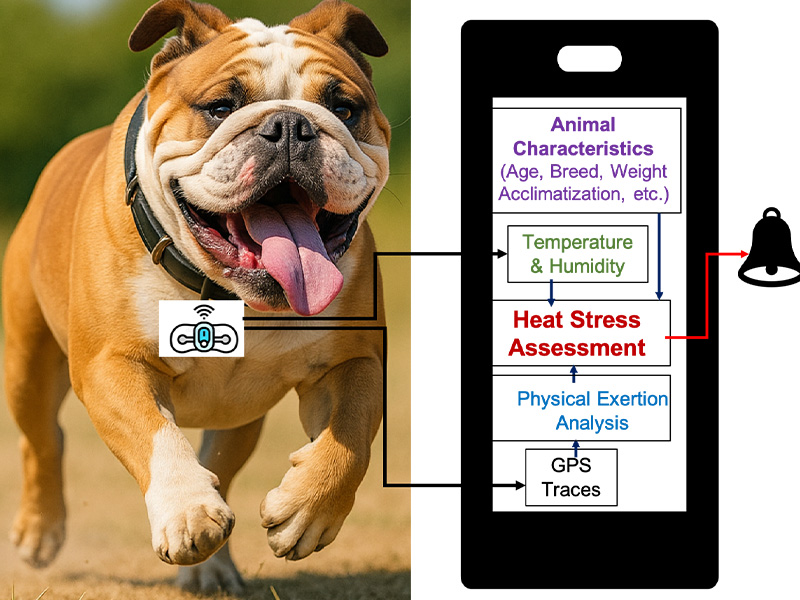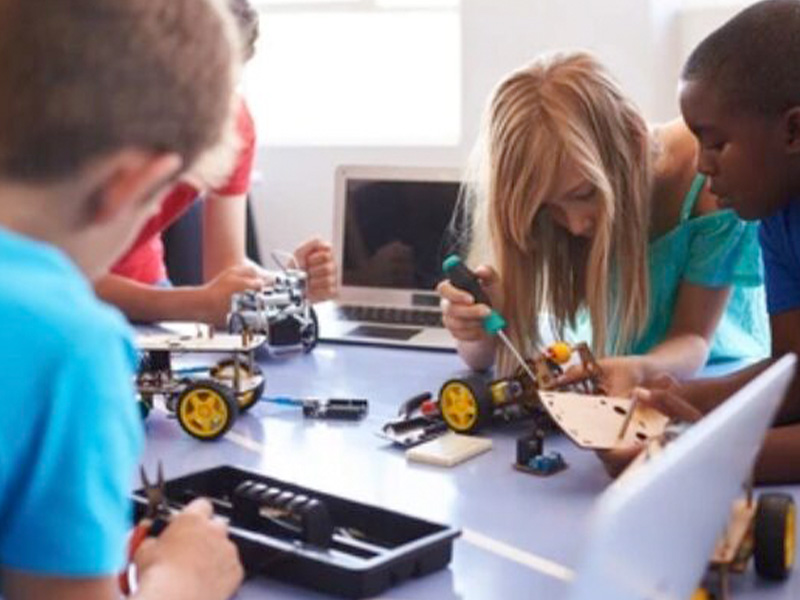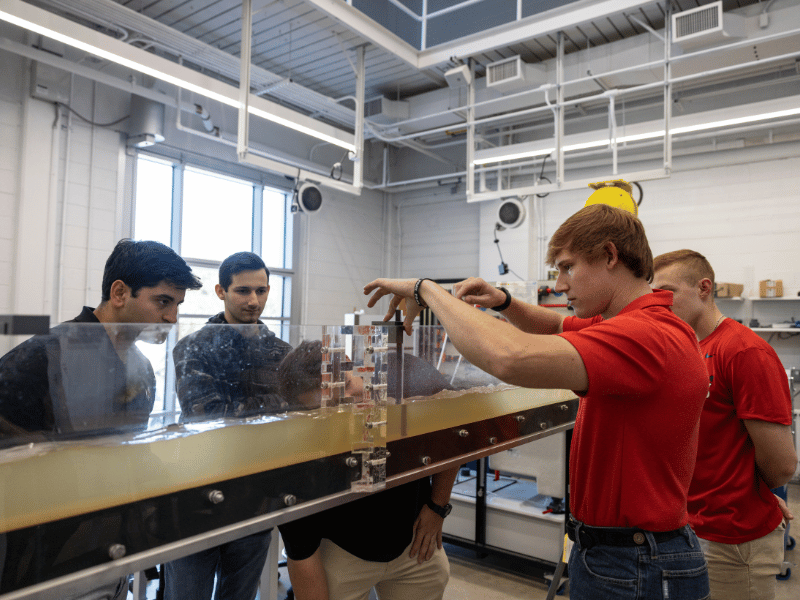The Vertically Integrated Projects (VIPR) program follows a national model and aims to offer a research structure that supports collaborative, interdisciplinary research teams that include undergraduate researchers, their faculty mentors, and other scientists such as graduate students, postdoctoral associates, and faculty collaborators.
STEMCORE
At the frontier of stem cell biology, our team uses human pluripotent stem cells to model the peripheral nervous system and the adrenal gland. We aim to uncover the disease mechanisms underlying diseases that affect those tissues in human patients. From conditions like Familial Dysautonomia to diabetic peripheral neuropathy to adrenal gland insufficiency, our lab’s […]
GlycoCURE Discovery
GlycoCURE Discovery is an interdisciplinary VIPR team focused on harnessing drug discovery and glycobiology to develop new disease models and therapeutic approaches for treating rare disease, with particular focus on congenital disorders of glycosylation (CDGs). Approximately 30 million individuals in the United States are living with a rare disease, which by definition have a prevalence of […]
WeatherRisk
This VIPR team is an interdisciplinary group that examines the risks posed by severe and extreme weather to communities and vital systems. These risks include, but are not limited to, high winds, extreme heat, flooding, drought, and wildfires. The team investigates the interconnected effects of these events – particularly compound and cascading hazardous weather – […]
VIPR: Omics and Machine Learning in Precision Agriculture
This VIPR team will introduce 10 undergraduates to an ancient symbiosis between Arbuscular Mycorrhizal Fungi (AMF) and most vascular land plants in the world. The AMF live in root cells to provide Nitrogen and Phosphorous to the plant in return for plant carbon. Students will use a Genome Wide Association Study (GWAS) to capture AMF […]
SPREE: Social Psychology of Research Experiences and Education Team
The SPREE team studies undergraduate research experiences, including the impacts of embedding research into courses and expanding the pool of research undergraduate research mentors to include graduate students and postdoctoral researchers. This team designs and conducts qualitative and quantitative studies to understand how different forms of research experiences influence students’ educational and career trajectories—for example, […]
Smart Agriculture Sensors
Agriculture productivity and livestock health are significantly influenced by factors such as ammonia levels, methane emissions, temperature, humidity, and soil moisture. Traditional sensing solutions often lack precision, durability, or affordability for widespread deployment, particularly in rural and underserved areas. This VIPR team will address these challenges by developing smart, affordable, and customizable sensors. The sensors […]
Project MACAW: Managing Avian Collisions At Windows
This team will identify hotspots and timing of lethal bird collisions with windows on the UGA campus. Students will: uncover the ecological and design drivers of collisions; assess knowledge and educate UGA students, staff, and faculty about the issue; develop monitoring protocols; and propose innovative solutions to prevent collisions by engaging with multiple stakeholders at […]
Perception & Preparedness: Healthcare Seeking Behaviors Before, During & After a Pandemic
This project aims to immerse undergraduate and graduate students in an in-depth analysis of healthcare decision-making behaviors as captured through a series of public opinion polls conducted by the Center for Health Risk Communication and Center for the Ecology of Infectious Diseases. Focusing on critical issues like vaccine acceptance, this endeavor seeks to unravel the […]
MIA Search and Recovery Technologies: Lost and Found
This VIPR team will enlist undergrads and grad students in the ongoing search and recovery efforts of Missing in Action military service members. There are currently over 80,000 MIA U.S. military service members whose remains have not been recovered. Over the past three years, the University of Georgia has partnered with external stakeholders involved in […]
Agricultural Robotics VIPR Team
The primary goal of this VIPR team is to empower students by equipping them with practical skills and cutting-edge theoretical knowledge in the field of agricultural robotics. Through hands-on research, students will delve into concepts, algorithms, and technologies, which they will then apply to real-world agricultural problems. The concepts and technologies initiated by the students […]
Luminous Room Documentary Film Production Group
This team will produce one short documentary film during a year-long cycle. This includes interviewing, collecting b-roll and archival footage, scripting storylines, forging graphics, editing, and exhibiting the final product. Topics are likely to follow themes of conservation/science and arts/culture. Each project will have a meaningful budget, and the team will have access to a […]
Innovation Factory
This VIPR team will provide students with hands-on opportunities to explore how emerging technologies—sensors, automation, and AI—can address real-world challenges in traditional manufacturing. Students will define case studies, assess technical and operational needs, and develop innovative solutions. Each project culminates in functional demonstrations that translate engineering theory into practical applications for advanced manufacturing. This team […]
Humanities in Public Life: A Multilingual Inquiry
This team will investigate how the humanities shape public life by analyzing cultural narratives, speech, and multilingual discourse in the U.S. Drawing on mixed methods from linguistics, literature, theater, and language studies, we aim to produce research-based insights into how humanistic practices contribute to civic dialogue, identity formation, and social cohesion. Our goal is to […]
Engineering Resilient Plants VIPR Team
This team will offer students an experiential learning opportunity in plant genome editing to create resilient plants. Through active participation in research, students will engage in the full pipeline—from experimental design to data collection, and statistical analysis. The team will employ hands-on lab projects with cutting-edge theory, helping students build critical skills in plant biology, […]
Developing Techniques & Devices for AI Enabled Earth-Observing Small Satellites VIPR Team
With the proliferation of satellites in space, low Earth orbit traffic becomes “jammed”, making it necessary to be more efficient in space-based data collection and downlink. From the perspective of Earth observers, the way to accomplish this efficiency goal is twofold: 1) Use small satellites (CubeSats), which have shorter mission lifetimes and more easily satisfy […]
Applied History Lab
This multidisciplinary team will work collaboratively to produce a multimedia web project for UGA’s new Applied History program. The team will produce original content and solicit content from relevant Applied History courses to create articles, blogs, newsletters, podcasts, and videos that demonstrate the value of “thinking in time” and show how the analysis of historical […]
AI4STEM Education Team
The AI4STEM Education VIPR team will empower students to explore, develop, and evaluate AI-powered tools and methods that enhance STEM teaching and learning. Through interdisciplinary collaboration, undergraduate and graduate students will contribute to cutting-edge educational research, develop practical AI-based learning tools, and engage in responsible innovation to promote equity, personalization, and scientific thinking in STEM […]
Agrivoltaics: Land-Centered Solutions for a Sustainable Energy Transition
Rapid climate change associated with the burning of fossil fuels has stimulated a global transition towards renewable energy sources. However, the lower “energy density” of clean energy sources such as photovoltaics (solar power) means that large areas of land are needed to reduce our reliance on fossil fuels. Agrivoltaics provides a potential win-win for landowners […]


